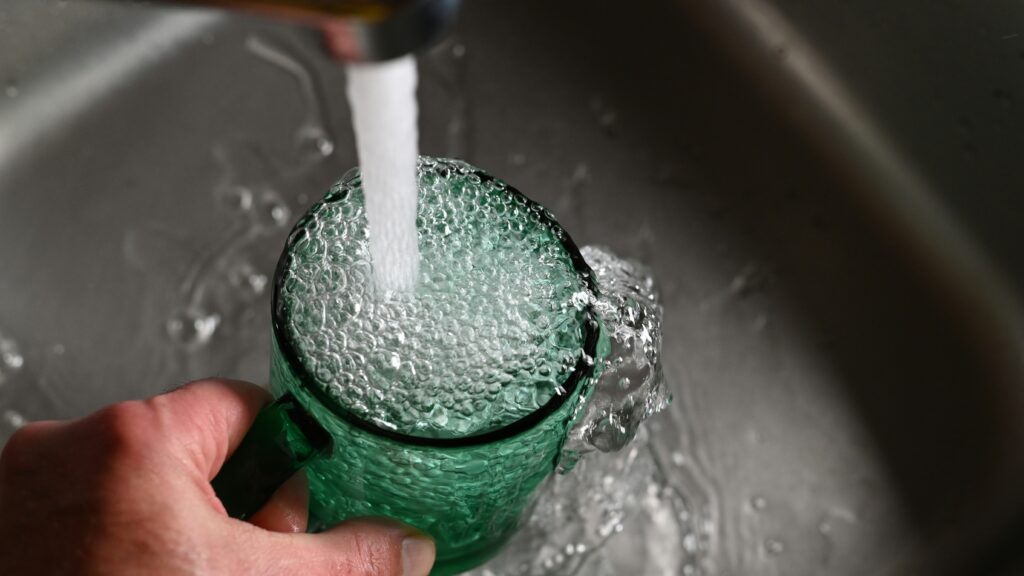
Do you need a filter jug at home? This question has delighted the UK water filtration industry over the last few weeks, with market researchers having long predicted that increasing pollution across Britain’s water systems would heighten public demand for home filtration systems.
This question is more relevant than ever as a cryptosporidium outbreak continues in parts of Devon, including Kingswear, Hillhead, north Brixham. South West Water, which initially denied that there was any problem, is still conducting repairs to its long-neglected supply lines as residents boil their drinking water. So far 100 people have been infected in the fourth cryptosporidium outbreak under SWW’s watch since its privatisation in 1989, with government inspectors having previously criticised the company for its “sporadic” filter maintenance.
Taking advantage of the chaos, other companies have stepped forward to offer their products as a solution. Doulton Water Filters achieved a PR scoop by donating 200 ceramic filter kits to the community. Meanwhile, other companies have piggy-backed off this manoeuvre by securing press releases with local outlets advertising their own filtration products in vaguely charitable terms.
As a result, the public is more aware of these products than ever. But are they effective? This question depends on the type of filter and impurity in question. There are many methods of water purification, most effective being reverse osmosis and activated carbon, whilst followed by ion exchange resins, and ultraviolet radiation.
reverse osmosis filters often remove healthy minerals from water, such as calcium and fluoride, thereby contributing to tooth decay.
As ever, pricier filtration products combine multiple filtration techniques, since some methods are geared towards removing pesticides, whilst others are designed to reduce bacteria, lead, or even microplastics. Indeed, one 2020 paper suggests that under-sink reverse osmosis filters can remove almost all microplastics from water, in addition to cryptosporidium, with filter jugs being highly effective at the same tasks.
Unfortunately, if water filters are not regularly replaced then the adsorbent effect of activated carbon can trap organic matter and nurture bacterial growth in the jug itself. Furthermore, reverse osmosis filters often remove healthy minerals from water, such as calcium and fluoride, thereby contributing to tooth decay.
That said, people don’t just filter water for fear of invisible by-products. Many advocates claim that their filtered water has a better taste. At a time where 42 percent of the UK population dislikes or mistrusts the taste of their unfiltered tap water this is a significant part of filtration’s appeal, especially since households with water filters may tend to consume less sugary drinks.
Nevertheless, the price and disposal of these products raises awkward problems. Whilst the upfront price may be cheap, they require new filters on a regular basis. The popular BRITA brand charges £37.49 for six months’ worth of filters, at the end of which one is left with a pile of complicated plastic that is difficult to recycle. Although BRITA’s marketing proudly boasts about its sustainable credentials, Exeter lacks filter recycling points and so these must be taken to participating sites or posted directly to BRITA. By offloading this responsibility onto the consumer, it is not hard to imagine many filters simply ending up in landfill instead.
The rise in filtration products ultimately reflects an increasing cynicism towards the country’s privatised water infrastructure, as sewage, pesticides, and plastic leak into faulty, poorly maintained pipe networks whilst dumped pollutants foul up the nation’s rivers and coastlines. However effective home filters are, it is hard to ignore the eagerness with which businesses celebrate the nation’s faulty infrastructure for fuelling the filter industry’s growth, with the sector projected to grow 30 percent by 2028. This ambition is striking, and one cannot help wondering whether the labour and investment spent in ferrying millions of disposable filters to and from households on a monthly basis might not be better spent on a deeper, collective infrastructural renewal instead.


